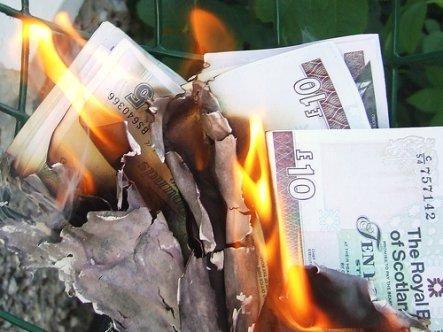| Money and the Crisis of Civilization | 2008-10-14 19:56 15 comments |
 by Flemming Funch by Flemming FunchBrilliant article by Charles Eisenstein. Maybe nothing I didn't already know, but plenty that strangely has remained secret for most people. What money really is, where it is coming from, and why things aren't going well for "the economy". One should learn it in school, it should be explained on billboards. There should at least be programs about it on TV. But no, I've never seen any program on TV that even hinted at it. Strange, as it is so shockingly simple. There is a much deeper crisis at work as well, a crisis in the creation of goods and services that underlies money to begin with, and it is this crisis that gave birth to the real estate bubble everyone blames for the current situation. To understand it, let's get clear on what constitutes a "good" or a "service." In economics, these terms refer to something that is exchanged for money. If I babysit your children for free, economists don't count it as a service. It cannot be used to pay a financial debt: I cannot go to the supermarket and say, "I watched my neighbor's kids this morning, so please give me food." But if I open a day care center and charge you money, I have created a "service." GDP rises and, according to economists, society has become wealthier.It is first of all a shockingly well-kept secret that money is created when a bank lends it out, and in no other way. It is very poorly understood that when money is created, more money than what was created is needed to pay it back (the interest), which is mathematically impossible, except for if the pyramid scheme can be kept going indefinitely. And there's obviously not widespread understanding of the systemic implications of this whole thing. The system requires that we keep inventing more and more things that we can keep from other people unless they pay us. It is all a big scam, but you're hard pressed to find anybody who'd admit it. |